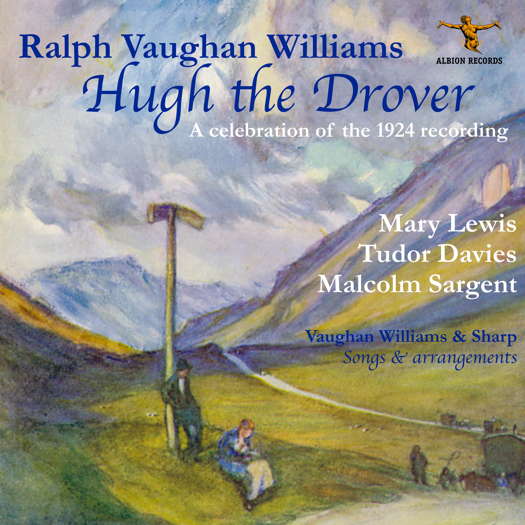- Decca Music Group Limited
- Gordon Rumson
- Bru Zane
- Foundling Hospital
- Richard Rodgers
- Teatro alla Scala
- Mihailo Trandafilovski
- James Barrington Stephens
 VIDEO PODCAST: Slava Ukraini! - recorded on the day Europe woke up to the news that Vladimir Putin's Russian forces had invaded Ukraine. Also features Caitríona O'Leary and Eric Fraad discussing their new film Island of Saints, and pays tribute to Joseph Horovitz, Malcolm Troup and Maria Nockin.
VIDEO PODCAST: Slava Ukraini! - recorded on the day Europe woke up to the news that Vladimir Putin's Russian forces had invaded Ukraine. Also features Caitríona O'Leary and Eric Fraad discussing their new film Island of Saints, and pays tribute to Joseph Horovitz, Malcolm Troup and Maria Nockin.
 UPDATES: There's a new feature every day at Classical Music Daily. Read about the various ways we can keep in touch with you about what's happening here.
UPDATES: There's a new feature every day at Classical Music Daily. Read about the various ways we can keep in touch with you about what's happening here.

A Century-old Recording
GERALD FENECH strongly recommends a new restored version of an early recording of Ralph Vaughan Williams' opera 'Hugh the Drover'
'... sound quality is not what we would expect today, but in a sense, therein lies its charm and fascination.'
Ralph Vaughan Williams (1872-1958) composed several operas which are full of attractive music influenced by his enthusiasm for traditional English folksong. None of them has entered the mainstream repertoire, though most have been successfully revived in recent years by the major English companies. Hugh the Drover, described as a 'Romantic Ballad Opera', was his first attempt, composed before the First World War during a period after his studies with Ravel in 1909. It was revised when he prepared it for performance in 1924, with further adjustments before his death.
It is perhaps the only opera in which the two leading male characters are required to perform a bare-knuckle boxing bout on stage. This could hardly have increased its chances of frequent revival. This was, however, the idea that sparked the composer's interest in producing an English equivalent to Smetana's Bartered Bride. He then had to find a librettist for the plot that was already forming in his mind. With the composer's frequent guidance as to what was required, the journalist Harold Child wrote the libretto, in line with Vaughan Williams' aspirations.
The opera was completed by the time war broke out in 1914, and the composer was on military service throughout. When he had the score published in 1924 it was taken up by both the Royal College of Music and the British National Opera Company. The former gave five performances described as private dress rehearsals in July, while the official premiere was given by the BNOC on 14 July 1924 at Her Majesty's Theatre, London. This important performance was conducted by none other than Sir Malcolm Sargent.
Plot summary: The action of the opera takes place during the period of the Napoleonic Wars, in a small village community in the Cotswolds, the part of the country where the composer grew up. The local people have congregated for a fair, at which various hucksters and tradesmen offer their wares.
Listen — Vaughan Williams: The Fair, The Showman (Hugh the Drover)
(ALBCD060 track 1, 0:36-1:31) ℗ 2024 Albion Records :
John, the prosperous local butcher, is engaged to Mary, who views the prospect with trepidation. Hugh arrives, a stranger to the area, who has brought animals to the fair. He falls for Mary immediately and she in turn finds him attractive. A prize-fight contest is to be held, with John, the local champion, challenging all comers. The prize on offer is £20. None of the men show any enthusiasm for this until Hugh volunteers to take up the challenge. To everyone's surprise he wins, but John immediately suggests he must be a French spy. He is arrested and put in the stocks pending further investigation.
Listen — Vaughan Williams: The Challenge And The Fight (Hugh the Drover)
(ALBCD060 track 6, 3:36-4:28) ℗ 2024 Albion Records :
As dawn breaks, Mary comes to release Hugh, having purloined her father's keys. They are unable to leave before other villagers arrive fresh from May Day celebrations. Hugh hides her under his cloak and accepts the likelihood that he will be executed. By the time her father and aunt arrive – her absence having been discovered – she has locked herself in the stocks next to Hugh and refuses to be released. She is disowned by her father and by John. When the troop of soldiers arrive to arrest Hugh, he is recognized by the sergeant as an old friend, who is most certainly not a French spy.
Listen — Vaughan Williams: The Sergeant releases Hugh (Hugh the Drover)
(ALBCD060 track 10, 0:00-0:50) ℗ 2024 Albion Records :
The tables are turned on John, who is now pressed into the army. Mary decides to join Hugh for a life on the road, and they leave the village behind to live happily ever after.
Now to this precious historic issue. After the successful premiere cited above, Sargent and the BNOC cast and orchestra soon found themselves in the recording studio with the goal of making this opera more accessible to the public. This was in September and October 1924. Setting down roughly half the opera on ten 78rpm sides, the whole running time ran to nearly forty-four minutes.
This remained the only recording until more complete recordings appeared in 1978 and 1994. Despite the limitations of the acoustic recording process, it is arguable that these early recordings have more than stood the test of time. Indeed, the passion captured in 1924 has never been bettered. Of course, a recording of this importance has been remastered before – just once, by Pearl, in 1975, when it was just over half a century old. Techniques have developed since then and Pete Reynolds has made a fresh master for Albion Records, direct from 78rpm discs, resulting in a cleaner sound.
Listen — Vaughan Williams: The Love Duet (Hugh the Drover)
(ALBCD060 track 5, 0:00-0:50) ℗ 2024 Albion Records :
Stephen Connock assembled the album but recording the libretto became a collaborative effort, since it was difficult to pen every word down following revisions in 1933 and 1956. It was at a late stage – just a few weeks ago – that the British Library, which has made a partial recovery from last year's cyber attack, was able to retrieve early manuscripts and scores to enable us to clear the final question marks.
For good measure, this piece of English Music history also includes remastered recordings of seven songs and folk songs, largely arranged by Vaughan Williams and Cecil Sharp.
This is a century-old recording resurrected thanks to modern technology which, after all, cannot hide the fact that sound quality is not what we would expect today, but in a sense, therein lies its charm and fascination.
Listen — Vaughan Williams: Hugh's Song Of The Road
(ALBCD060 track 17, 3:04-3:58) ℗ 2024 Albion Records :
This is a must buy issue, if only for its historical significance alone. The liner notes, including full texts, are well up to Albion's customary high standard. Nothing but a strong recommendation.
Copyright © 18 July 2024
Gerald Fenech,
Gzira, Malta



